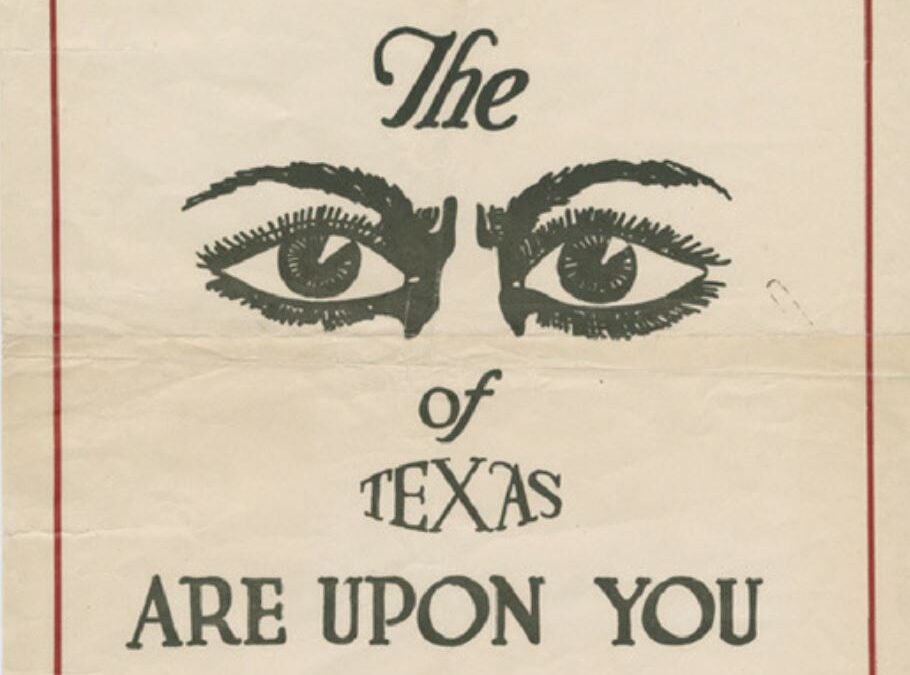Image from the Bullock Museum.
On January 23, 1964, U.S. states ratified the 24th Amendment, which outlawed the poll tax (a fee imposed as a condition of voting) or any type of tax as a requirement for voting eligibility in federal elections.
Along with the 15th and 19th Amendments (which guaranteed voting rights to African-Americans and women), the 24th Amendment quickly became one of the most important pieces of voting rights legislation for American citizens. The following year, Congress passed the landmark Voting Rights Act of 1965, which greatly expanded access to minorities and other disenfranchised voters and significantly improved minority voter turnout.
Although the poll tax had already been repealed in many areas, five states still maintained the practice at the time of the Amendment’s adoption, including Texas. The amount of the tax varied, and in most instances was only a few dollars—but in that era, even a few dollars was a barrier to voting for poor and working-class voters, who typically only earned a few dollars a week. The poll tax was also a problem for some middle-class and affluent white women since women commonly lacked access to their own money at the time.
Additionally, the logistics of poll tax payment could be challenging, since some jurisdictions required cash-only payments presented at limited locations, like police headquarters.
Texas was not among the requisite 38 states that voted for ratification of the 24th Amendment, and in fact would not actually ratify the Amendment, in an act of symbolic formality, until 2009. The post-ratification bill was sponsored by Dr. Alma Allen of Houston, a member of the Texas House of Representatives.
However, in the wake of the Amendment’s adoption, Texas lawmakers passed a resolution to abolish poll taxes for state and local elections that were presented for voter approval in 1966 as Proposition Seven. Voters said “yes”, resulting in the an amendment to the state constitution that ended the poll tax in Texas forever.
Additional Learning: “History of the 24th Amendment”—from the U.S. House of Representatives

